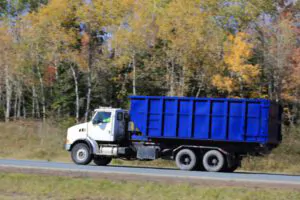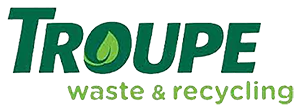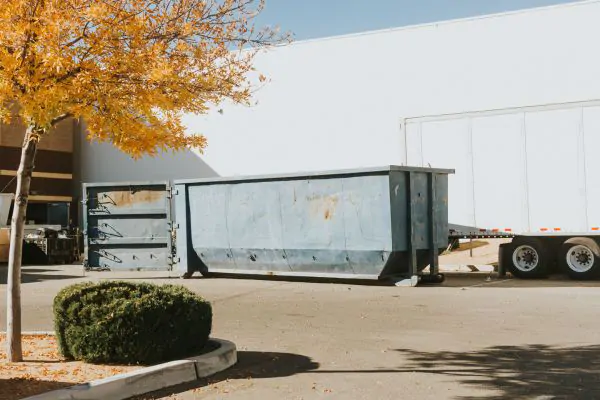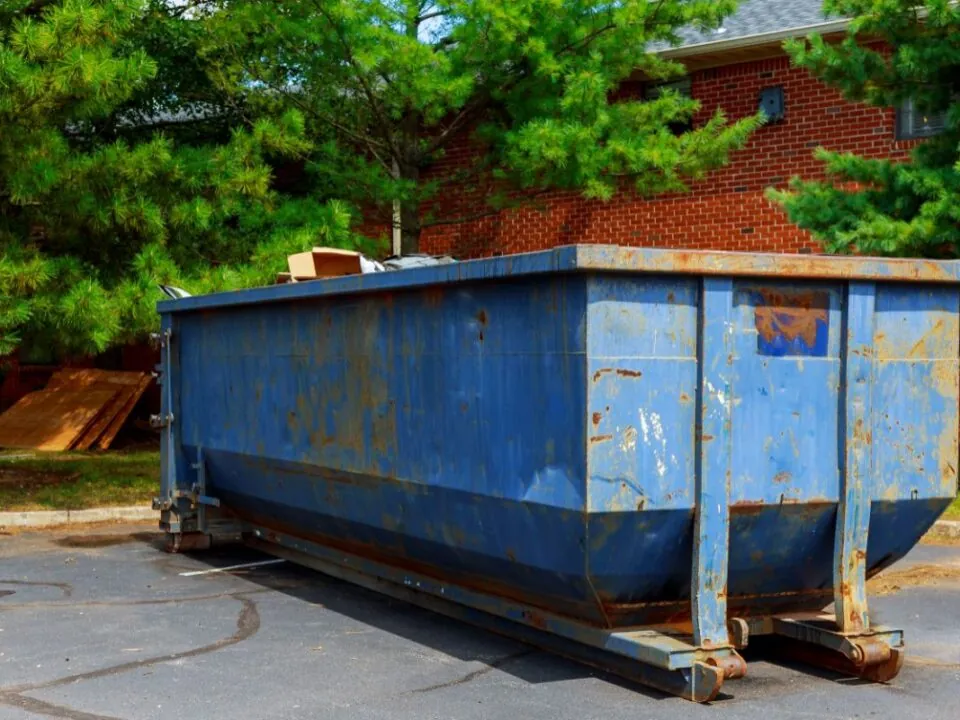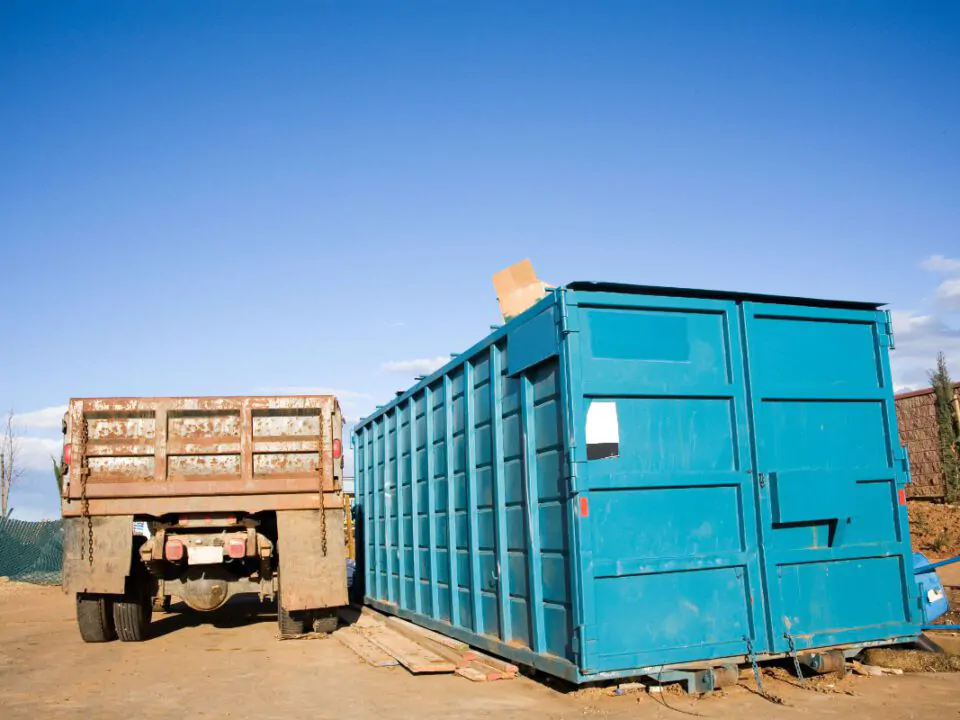The Ultimate Guide to Roll-Off Containers: Everything You Need to Know
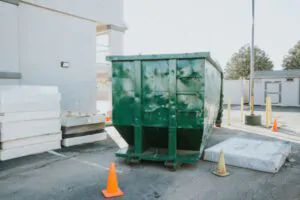
Discover what a roll-off container is and how it works. Ideal for waste removal, construction debris, and large cleanup projects, these dumpsters are versatile.
If you’re tackling a major cleanup, renovation project, or construction job, roll-off containers, also known as dumpsters, can be your best friend. These versatile bins offer convenient and efficient waste disposal solutions for a wide range of applications. In this comprehensive guide, covering everything you need to know, from understanding their types and benefits to choosing the right one, renting, using, and even maintaining these essential tools. Let’s roll!
Understanding Roll-Off Containers
As the name suggests, are large waste containers with an open top that can be “rolled off” the back of a truck for easy placement at your site. They come in various sizes, typically measured in cubic yards, making them suitable for different types of projects. Roll-off containers are widely used in residential, commercial, and industrial settings for efficient waste disposal.
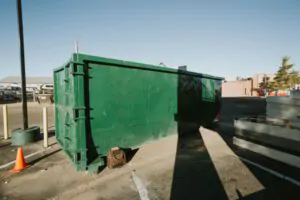
Benefits of Roll-Off Containers
Roll-off containers offer a multitude of benefits that make them a preferred choice for waste disposal:
1. Size Variety
Roll-off dumpsters come in a range of sizes, from 10 to 40 cubic yards, ensuring you have the right container for your project, whether it’s a small home cleanout or a large-scale construction site.
2. Easy Loading
Their open-top design allows for effortless loading of waste materials, from construction debris to household junk.
3. Efficient Waste Removal
Can be quickly delivered and picked up, ensuring efficient waste removal and minimizing downtime on your project.
4. Versatility
They can handle various types of waste, including construction debris, household junk, yard waste, and more, making them versatile for different projects.
5. Environmental Responsibility
Many roll-off container providers have eco-friendly waste disposal practices, ensuring that a significant portion of the waste is recycled or properly disposed of.
6. Cost-Effective
Renting a roll-off container can be cost-effective, especially when compared to multiple trips to a landfill.
How to Choose the Right Roll-Off Container
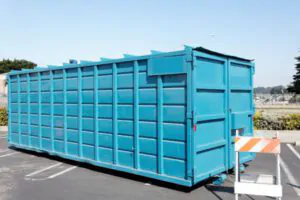
Selecting the appropriate roll-off container for your project is crucial for efficiency and cost-effectiveness. Consider the following factors:
1. Project Type – Determine the nature and scale of your project. Different projects generate varying amounts and types of waste, so choose a container size that matches your needs.
2. Size: Come in various sizes, and the right one depends on the volume of waste you anticipate. It’s better to choose a slightly larger container to avoid overfilling.
3. Location – Consider where the container will be placed. Ensure there’s enough space for it without obstructing traffic or causing damage to property.
4. Weight Limit – Have weight limits, and exceeding them can result in additional fees. Be mindful of the materials you plan to dispose of and choose a container with an appropriate weight limit.
5. Rental Duration – Determine how long you’ll need the container. Most providers offer flexible rental periods, so discuss your timeline with them.
6. Local Regulations – Check local regulations and permits, if required, for placing a roll-off container on public property.
Renting and Using Roll-Off Containers
Renting and using roll-off containers is a straightforward process:
1. Research and contact reputable roll-off container providers in your area. Request quotes and compare prices and terms.
2. Once you’ve chosen a provider, schedule the delivery of your roll-off container. Ensure you have the necessary permits if placing it on public property.
3. Load the container with your waste materials, making sure not to exceed the weight limit or overfill the container. Overfilling is a safety hazard and can result in additional charges.
4. When you’ve filled the container or completed your project, contact the provider to schedule pickup. They will haul it away and handle the disposal.
5. Pay the rental fees and any additional charges, such as overage fees for exceeding weight limits.
Roll-Off Container Maintenance
Proper maintenance ensures safe and efficient use. Here are some maintenance tips:
1. Overloading can cause structural damage to the container and create safety hazards during transportation.
2. If your project spans multiple days, cover the container when not in use to prevent unauthorized dumping and weather-related issues.
3. Ensure the area around the container is clean and free from debris to prevent accidents during loading and unloading.
4. If you notice any damage to the container, such as holes or cracks, report it to the provider immediately for repair or replacement.

Roll-off containers are invaluable tools for efficient waste disposal, offering a wide range of benefits and versatility for various projects. By understanding the types, benefits, and factors to consider when choosing the right container, as well as the rental and usage process, you can make the most of these essential resources.
Expert Dumpster Rental Experts in South Shore, MA
Looking for a good place to store your trash until the pickup day? We have an answer for that! Troupe Waste and Recycling offers affordable, safe, and effective solutions to all your dumpster rental problems. Call us now for a free quote and consultation!
